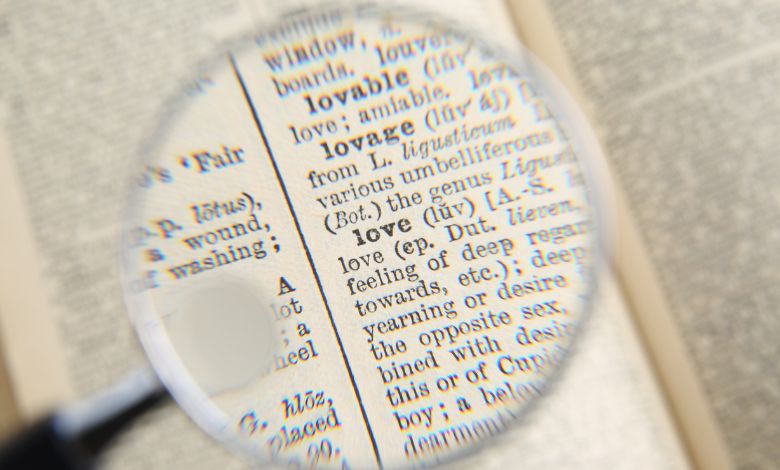Discover wild up meaning, its slang roots, cultural impact, and how people use it in everyday talk, music, sports, and social media.
Language is a fun thing. You were believed to suddenly convert you into fresh forms, slang pops up from anywhere, and before you know it, you hear from a friend who falls careless, “Man, the audience was really wild.”
And you stop.
“Wait, what does game mean?”
I went there.The first time I heard the expression, I rolled through social media. A viral video text said, “Fans began to get wild when they came on stage.” My first idea? “Is it also the right English, or is there just any new internet snake I’ve missed?” That curiosity sent me down a rabbit hole , one I’m going to take you today.
Therefore, Bucksua (or maybe I should dismiss wild), because in this article we will not only detect wild meanings, but also its use, roots, cultural taste and how to use it in your interaction.
What You'll Discover:
What does “Wild Up” mean?
Let’s start easily:
👉 “Wild up” usually means an uncontrolled, energetic way enthusiastic, provoking or acting.
It is a phrase that often appears on informal speech, music or social media, and it captures the moment when emotions are bubbled in action. Think of it as an oral spark that lights chaos, energy or reproduction.
Example:
“When the teacher did not do homework, the children began to get wild.”
“The party really once DJ played that track.”
“Every time he scores against his favorite team, he gets wild.”
The nice thing about slang is that it does not sit quietly in a dictionary , it moves, develops and adapts. This is what happens with “wild up”.
By breaking it: “wild” + “up”
If we see the pieces in the expression:
Wild: uncontrolled, energetic, untamed, sometimes chaotic.
UP: A regular snake modifies in English that intensifies actions. (Think “pops up”, “get up”, “wake up.”)
Put them together, and this lively image of “wild up” energy becomes, emotions boil or calm have a chaotic position.
It is not Polish grammar, but it is the magic of the snake , it lives in the same way that people do not actually in textbooks, but not in textbooks.
Where do people use “wildly up”?
When I began to pay attention, I realized that the Wild Up show is in all kinds of references:
Music and performance
An audience “Wills Up” when the headliner finally treads on stage.
Hip, hop, rap and party songs often carry this phrase because it corresponds to the mood with high energy.
Game
A picture of a stadium when someone scores a victorious goal. Fans are not just happy , they are wild.
Social media
TIKTOK image text, Instagram , Wheel or Tweet: “Wait for the comment box for this.”
Everyday
When a group of children get candy.
When colleagues feel that it is free pizzo fried.
When your dog sees you keep the lease.
Originally anywhere the energy becomes calm for electricity, you will get “wild up”.
Is “wild up” proper English?
Here’s the case: Not really , not at least in a formal sense. You will not see “Wild Up” in Oxford English Dictionary Definitions or will hear it in academic speeches. But this does not mean it is wrong.
Language is democratic. If people use it, it is valid. “Wild Up” works perfectly in random contexts , especially when you want to add personality and beat.
Think of it as “lit”, “pops up “or” spread of tea “. These are either” correct “sentences, but they occupy a mood which makes them powerful.
So no, don’t use it in the College thesis. But yes, use it when you tell your friends how the party went down.
Wild up vs Like expression
Things get interesting here. “Wild Up” contains brothers and sisters , individuals meaning something similar, but not quite the same.
Rill up: To provoke or irritate.
“The debate began with the audience.”
Hype up: to stimulate or energetically.
“The coach hypnotized the team before the match.”
Turn up: Get the party hard or loud.
“We actually turned into that concert last night.”
Go wild: Task without restraint.
“The children were wild when the ice cream car arrived.”
👉 Difference? “Wild up” bends more towards energy , whether it is positive (reproduction, tension) or chaotic (anger, chaos).
My personal encounter with “Wild Up”
Let me be personal for a moment.
The first time I didn’t really understand “Wild Up” from social media , it was in a basketball match. My local team lost poorly, and the energy of the stadium was flat. People were on their phones, half ASAP. So, anywhere, a player drowned. Not just no Sting, Earth, Kag, Rim, Blowing Sting.
Immediately, the audience was postponed.
I talk to people who jump, bounce drinks, strangers they have never met. I even found myself and shouted as I had. When it was clicked: “Wild Up” is the only sentence that fits that type of energy in the lap.
And since I have seen myself use it carelessly. When my niece walks around the house after a lot of sugar, I say, “Not wild before you sleep.” When a film theater disappears after turning a big plot, I whispered to my friend, “they are really based on it.”
When you start using it, it attaches.
Cultural roots: slang and music
Many snake phrases have cultural houses, and “wild” seems to be inherent in urban slang and music culture.
In hip hop you will find similar sentences such as “Gate Wild”, “Turn Up” and “Act Up”.
In dancehall and regag, energy and movement are often described in words like “wind” or “mash up”.
It is no surprise that “wild up” thrives in places where energy, rhythm and expressions mean the most.
Why “Wild up” resonates with us
So why do people like this phrase?
Because it paints a picture.
Instead of saying that “the amount was excited” and saying that the “amount raised” immediately makes you feel energy. It is raw, colorful and reliable.
The language is about the Spirit as the logic, and “Wild Up” loses into the emotional core.
Think about it as spice in food. You can say that “this is a good taste” or you can say “the spicy kick woke the whole mouth.” It is plain; the other is delicious. “Wild Up” is a delicious version.
Can you use “Wild Up” in writing?
Of course , but with reference.
Great for: blog, caption on social media, personal history, dialogue in history.
Not good for: CV, formal essay, commercial e , post.
I like to wear sneakers. Perfect to hang out with friends, not so much for a black ribbon marriage.
Rich
To make it even more reliable, play some scenarios:
At a concert
Cool Crowd → Favorite artist shows up → Wild the audience.
Family meeting
Children look at comics quietly → someone brings cake → they get immediately wild.
Workplace
Far, boring meeting → Boss announced half a day → colleague wild (quiet, but you can see it in their face).
Sports bar
Everyone looks at the game → the goal with the last second → Bar Wilds, you can’t think so much.
See? When you notice it, it happens everywhere.
Questions about “Wild Up”
1. Is there a “wild up” slang?
Yes, it is an informal snake, which is mostly used in random or expressive conversations.
2. Can I use “Wild Up” in professional writing?
Not recommended , it is best for contingent, social media or storytelling.
3. Is it similar to “Rile Up”?
Closed, but not enough. “Rile Up” often bends against irritation or anger, while “wild up” can mean enthusiasm, anarchy or reproduction.
4. Does that mean negative or positive?
Both , it depends on reference. This can mean positive reproduction (raised party) or negative chaos (the argument is rebuilt).
My trip with slang (and why “Wild Up” means something)
I want to be honest: I used to roll my eyes in slang. I felt that it was only lazy with human languages. But over time I realized that it is not slang , it is creativity.
Each slang word is a cultural snapshot, there is a small glimpse of how people are at the moment. “Wild Up” is one of the expressions that reminds me that the language is vibrant, flexible and ironic.
Every time I hear it, I smile. Because it just doesn’t tell me what happened, I think about what happened. And he is the point of the language for me.
Key Takings
- So after all the exploration, here’s the takeaway:
- 👉 “Wild up” means being excited, hypnotized or chaotic, often in response to an event, feelings or situation.
- It’s slang, it’s random, and it’s alive. Whether you are at a concert, watching a game or just treating children to a Chinese audience, catching “wild up” the moments when Energy boils.
- And who knows , maybe the next time you tell a story, you will leave it careless. Trust me, it tastes.
- For sometimes “they were excited” just didn’t bite it. Sometimes you have to say. “They get up.”
Additional Resources
- Green’s Dictionary of Slang – Keep One’s Wild Up: A scholarly slang resource tracing historical uses of “wild,” including the phrase “keep one’s wild up” from early 20th-century Australia.








